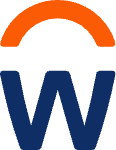
Best Enterprise Resource Planning (ERP) Systems 2026
Enterprise Resource Planning (ERP) helps to integrate and manage an organization's core business processes. It is a software system acting as a central nervous system, connecting functions like finance, human resources, supply chain, and manufacturing into a single, unified platform. ERP systems provide a single source of truth, automating workflows and offering real-time data to improve efficiency and decision-making across the enterprise. Compare ERP tools based on verified user reviews and ...
We’ve collected videos, features, and capabilities below. Take me there.
All Products
Learn More about Enterprise Resource Planning (ERP) Software
What are ERP Systems?
Enterprise Resource Planning (ERP) systems are platforms that handles all the resources required to make, ship, and account for customer orders. It does this by integrating all the information flowing through the various departments of a large complex organization.
ERP traditionally involved many different processes, such as manufacturing, supply chain, and accounting. ERP systems have also expanded beyond their original business functions to include newer functional areas like Business Intelligence (BI), CRM and Marketing Automation, and eCommerce. As a result, modern ERP can benefit a broader range of companies than the traditional manufacturing-centric users.
The entire data flow across these functions is enabled by a central database that manages the data flow. All functions see and operate with the same data. This unified view of a business’s data mitigates discrepancies across departments and business units and makes financial processes more efficient.. For example, adopting an ERP system can streamline accounting and financial reporting and resource planning.
ERP Features & Capabilities
ERP systems have a very broad range of capabilities, including:
- Accounting
- Inventory Management
- Payroll Management
- Reporting and Analytics
- Project Financial Management Procurement
- Risk Management
- Logistics
- Manufacturing
- Supply Chain Management
- Product Lifecycle Management
Cloud-based ERP Systems
Traditional ERP systems are complex, expensive proprietary products. They usually require consultants to implement them according to a company’s specific requirements and are long, expensive processes.
Many ERP offerings are now available in a SaaS (software as a service) model through the cloud. SaaS ERP products outsource most or all of the IT burden and maintenance costs to the software provider and off of the business using the system. Cloud-based ERP also make updates and upgrades easier to implement and deploy.
Cloud ERP is a more accessible option than on-premise ERP for many SMBs. For smaller companies, the total cost-of-ownership of a cloud-based system is likely to be lower than for on-premise software.
ERP Systems Comparison
To compare different enterprise resource planning systems, consider these factors:
- Deployments: Are the ERP systems deployed on-premise, or in the cloud? On-premise software usually requires more in-house IT personnel to manage and maintain the system. On the other hand, SaaS ERP products may limit your in-house customization and require more assistance from the software vendor for long-term support and upgrades.
- Cost: Evaluating the financial impact of an ERP system requires looking at the total cost of ownership, rather than just the price tag. To gauge the total costs of the system, consider both the direct purchase cost alongside the in-house IT costs and resources spent, or not spent, on the system. Also compare the functions that are included in each product’s base package and what functionalities are add-ons that cost extra.
- Accessibility for non-IT users: While ERP systems have made strides in usability among line of business users, there is still wide variation between products’ accessibility. To best gauge ERP software’s usability for non-coders, look for review feedback from non-IT specialists.
Pricing Information
There is such a variety of products in this category that pricing varies widely. Many products, particularly cloud-based ERP, are priced per user with some base per/month cost for the software itself. Costs per user can be around $7,500, but are usually customized to each deployment.
One major factor is whether to deploy an on-premise or a cloud-based system. Over the course of a year, subscription fees for a cloud-based system are typically about 20 to 30 percent of the cost of a similar system’s perpetual license. Additionally, an on-premise deployment will incur support and maintenance costs which are between 10% and 20% of the original licensing fee.
More Resources
- ERP Implementation Best Practices: A Step-by-Step Guide for Success
- Decision Factors: How to Choose an ERP System
TrustRadius Methodology
TrustRadius category pages are created by the TrustRadius Research Team. The mission of the TrustRadius Research Team is to ensure that our review platform is the most useful, trustworthy, high-quality information source for technology buyers. We seek to help technology buyers make more informed decisions with less stress.
We do this by:
- Understanding and accurately covering hundreds of software categories, including category descriptions and product details.
- Ensuring the authenticity and quality of the reviews and ratings we collect and publish. Read more about our reviews, including how we authenticate and source reviews here.
- Researching the technology buying process, recommending new site features to support the buyers’ journey, and advising tech vendors on how to earn the trust of their buyers.
We know that buyers on our site are using reviews—trusted feedback from their peers—to make important decisions, which is why we’ve taken steps to ensure that the scores you see on this category page reflect the true sentiment of software users. Read more about TrustRadius scoring, category sort methodology, and more here.
Enterprise Resource Planning (ERP) FAQs
What is ERP software?
Who uses ERP systems?
What are the core features of ERP software?
How much does ERP software cost?
What are the different types of ERP?
There are some ERP products tailored to specific verticals, such as manufacturing or construction. There are also 3 types of ERP deployments: on-premise, in the cloud, and as SaaS.





















